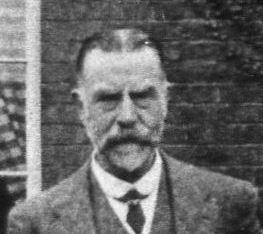A Quote by William Arthur Dunkerley
For death begins with life's first breath,
And life begins at touch of death.
Related Quotes
As deaths have accumulated I have begun to think of life and death as a set of balance scales. When one is young, the scale is heavily tipped toward the living. With the first death, the first consciousness of death, the counter scale begins to fall. Death by death, the scales shift weight until what was unthinkable becomes merely a matter of gravity and the fall into death becomes an easy step.
Birth leads to death, death precedes birth. So if you want to see life as it really is, it is rounded on both the sides by death. Death is the beginning and death is again the end, and life is just the illusion in between. You feel alive between two deaths; the passage joining one death to another you call life. Buddha says this is not life. This life is dukkha - misery. This life is death.
The greatest mystery in life is not life itself, but death. Death is the culmination of life, the ultimate blossoming of life. In death the whole life is summed up, in death you arrive. Life is a pilgrimage towards death. From the very beginning, death is coming. From the moment of birth, death has started coming towards you, you have started moving towards death.
Everybody is afraid of death for the simple reason that we have not tasted of life yet. The man who knows what life is, is never afraid of death; he welcomes death. Whenever death comes he hugs death, he embraces death, he welcomes death, he receives death as a guest. To the man who has not known what life is, death is an enemy; and to the man who knows what life is, death is the ultimate crescendo of life.
All death in nature is birth, and at the moment of death appears visibly the rising of life. There is no dying principle in nature, for nature throughout is unmixed life, which, concealed behind the old, begins again and develops itself. Death as well as birth is simply in itself, in order to present itself ever more brightly and more like to itself.
By 'coming to terms with life' I mean: the reality of death has become a definite part of my life; my life has, so to speak, been extended by death, by my looking death in the eye and accepting it, by accepting destruction as part of life and no longer wasting my energies on fear of death or the refusal to acknowledge its inevitability. It sounds paradoxical: by excluding death from our life we cannot live a full life, and by admitting death into our life we enlarge and enrich it.
Laughter. Yes, laughter is the Zen attitude towards death and towards life too, because life and death are not separate. Whatsoever is your attitude towards life will be your attitude towards death, because death comes as the ultimate flowering of life. Life exists for death. Life exists through death. Without death there will be no life at all. Death is not the end but the culmination, the crescendo. Death is not the enemy it is the friend. It makes life possible.
To say it again, eternal life is less about a kind of time that starts when we die, and more about a quality and vitality of life now in connection to God. Eternal life doesn't start when we die; it starts now. It's not about a life that begins at death; it's about experiencing the kind of life now that can endure and survive even death.
A favorite pro-abortion tactic is to insist that the definition of when life begins is impossible; that the question is a theological or moral or philosophical one, anything but a scientific one. Fetology makes it undeniably evident that life begins at conception and requires all the protection and safeguards that any of us enjoy....As a scientist I know, not believe, know that human life begins at conception.
When life begins we are tender and weak When life ends we are stiff and rigid All things, including the grass and trees, are soft and pliable in life and dry in brittle in death So the soft and supple are the companion of life While the stiff and unyielding are the companions of death An army that cannot yield will be defeated A tree that cannot bend will crack in the wind Thus by Nature's own decree the hard and strong are defeated while the soft and gentle are triumphant
The conquest of the fear of death is the recovery of life's joy. One can experience an unconditional affirmation of life only when one has accepted death, not as contrary to life, but as an aspect of life. Life in its becoming is always shedding death, and on the point of death. The conquest of fear yields the courage of life. That is the cardinal initiation of every heroic adventure - fearlessness and achievement.




































